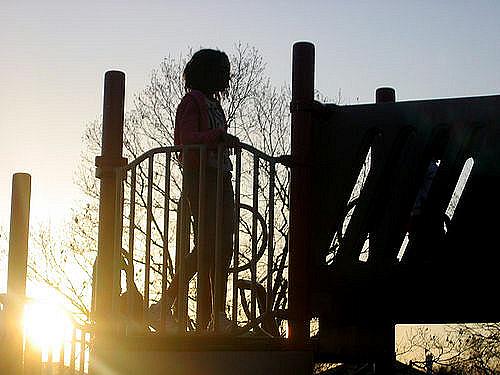New study of Chicago’s poorest kids sheds light on adversity’s long shadow

By now most health reporters have at least a passing familiarity with the Adverse Childhood Experiences (ACE) study. That now-famous research, conducted on Kaiser Permanente patients in San Diego in the late 1990s, found that the more adverse experiences a child had while growing up, the more likely he or she would have a Pandora’s box of physical and mental health problems later in life.
The term “adverse experiences” is an academic’s way of referring to various forms trauma. In the original ACEs survey, it referred to events such as emotional neglect, a locked-up parent, an alcoholic mother or a depressed father, for instance. The more boxes a patient checks off, the more likely he or she will suffer from health problems such as diabetes, cancer, heart disease, addiction and depression.
The ACE study sparked a wave of follow-up studies. But the existing research has been largely based on middle- and upper class whites and hasn’t necessarily focused on broader measures of well-being, such as a person’s education level, arrest record or occupation.
A new study published in the April issue of the journal Pediatrics seeks to remedy those limitations by looking at data drawn from kids who grew up in Chicago’s poorest neighborhoods, while also looking at some broader measures of well-being, such as education level and rap sheets. Are these, too, tightly correlated with childhood traumas?
Researchers analyzed data from 1,202 participants from the Chicago Longitudinal Study, which tracked individuals born in 1979 and 1980 and who grew up in some of Chicago’s “most economically disadvantaged neighborhoods.” More than 90 percent of those in the study are black, the rest Latino. Participants were surveyed at ages 22 and 24, and asked about their family histories, school experiences and overall well-being.
The results may not surprise. Researchers found that those who reported higher numbers of “adverse events” in their past were less likely to graduate high school, more likely to have juvenile arrests and felony charges, less likely to obtain advanced degrees and hold skilled jobs. Individuals with four or more ACEs were three times more likely to have been arrested. The researchers conclude:
Our study is one of the first to show that ACEs are negatively associated with broad domains of well-being, including educational attainment, occupation prestige, criminal behavior and mental health. Key indicators of economic well-being, including educational and occupational success, declined as the number of ACEs increased.
The study’s finding that higher ACE scores were associated with less education is worrying. It suggests that adversity may be waging war on kids’ health in more ways that one: Directly, through the physiological effects of toxic stress and its corrosive effects on brain development, and indirectly, since education level has long been tied to worse health outcomes and shorter lifespans. The suggestion is that there are multiple pathways by which trauma and adversity shape young lives for the worse.
While some will always argue that education is the best panacea for a bad childhood or severe poverty, it’s easy to underestimate the power of abuse and neglect to rewire young brains and curtail educational achievement. When it comes to childhood adversity, prevention is always king. Medical screenings and attuned physicians can catch early problems. But when all else fails, the need for bolder interventions will remain as urgent as ever. For all the talk about building up children’s emotional resilience these days, the corresponding public investments can seem conspicuously small.
[Photo by The Good Doctor via Flickr.]
Related posts
Can practicing mindfulness combat toxic stress, childhood adversity?
We know toxic stress is damaging to kids, but how do we fight it?
With spotlight on childhood adversity, new data offer finer-grained view
Just how does childhood adversity turn into poorer health?
Q&A: NPR’s Laura Starecheski reports on childhood adversity (Parts One & Two)

